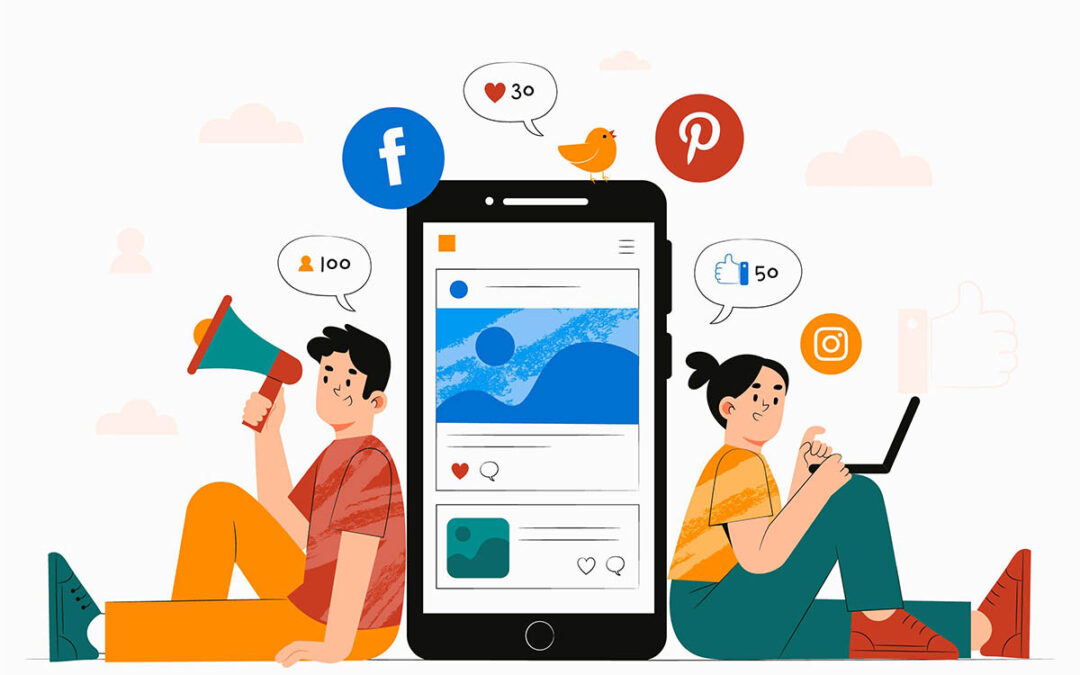Our society has achieved major progress in the field of technology that has made education, employment, physical exercise, shopping, travelling and execution of daily activities easier for the entire population. The development of social media applications has also contributed to higher chances of affordability, accessibility and availability of goods, services and valuable information. There are different applications that serve different functions for the human species. The assistance received from apps includes help in emergency medical and counselling services, delivering grocery items, booking cabs, receiving qualified tutors etc. The social media applications on the other hand exclusively provide privileges concerning contact information that include awareness of specific official sites, the possibility of connecting to educators, shopkeepers, carpenters, plumbers through different groups, pages and accounts. Despite the economic, medical and social benefits there are some psychological effects of the use of social media which can become the cause of multiple maladaptive thought patterns and behaviours.
One of the basic consequences of excessive use of social media is the lack of communication as well as social skills that is fostered mainly through face to face interactions and outdoor experiences. This not only makes children antisocial but also hampers their personality development. Social upward comparison is another effect that leads to negative thinking. Here, users dwell intensely in comparison to other people’s happy moments and lives which results in depression and lowers one’s self-esteem. Influenced by models and fitness pages, major body image issues also develop in teenagers and young adults where they starve themselves for days and follow unhealthy practices of weight loss. A constant combination of low mood and stress of appearance can also lead to Eating disorders which are extremely dangerous to one’s life. As put forward by Albert Bandura, human behaviours are sometimes the result of observation, the depiction of violent expressions, frustration, aggression and abusive behaviour in the web series or any media can lead to anger development in children and adolescents. One of the most challenging impacts of the use of social media applications is trolling, cyberbullying and cyberstalking. There are severe mental health consequences of cybercrime like anxiety, panic attacks and social phobia. Self-absorption also develops when one posts endless selfies or personal thoughts which can make them distant from real-life connections. Extreme forms of self-absorption can also lead to narcissism which can be of two types. Grandiose narcissism is where a person is socially competent, dominating and charming and vulnerable narcissism on the other hand lacks social skills. It is thus important to take precautions to ensure technological security.
The Newport institute reported a study in the year 2020, that describes the association between narcissism and levels of anxiety. It was found that both grandiose and vulnerable types of narcissists have a higher risk of developing an addiction to Facebook, as a coping mechanism for anxiety. Researchers analyzed data from 327 Facebook users in Germany. The study authors concluded, “The higher the narcissism level, the more anxiety symptoms are experienced that foster the development of addictive tendencies.
A study at the University of Pennsylvania found that high usage of Facebook, Snapchat, and Instagram increases rather decreases feelings of loneliness. Conversely, the study found that reducing social media usage can actually make you feel less lonely and isolated and improve your overall wellbeing. Another recent impact on the youth is that of FOMO (Fear Of Missing Out) which has been around far longer than social media. The idea that one is missing out on certain things can impact their self-esteem, trigger anxiety, and fuel even greater social media use. FOMO can compel you to pick up your phone every few minutes to check for updates, or compulsively respond to each and every alert.
In spite of several negative consequences of social media use, it still meets most of our needs and fulfils requirements, especially in the post-pandemic situation. In an era of digitalization, it is not feasible to eliminate the use of social media applications as it is one of the crucial platforms which permits individuals to voice their opinions. However, one needs to be extremely cautious about its harmful demotivating side effects. Engaging in other hobbies and physical activities apart from social media can help in proper self-care. Raising awareness about privacy-related security systems is also an essential step. Hence, usage of social media applications majorly depends on the individual itself wherein they need to regulate their choices in a healthy manner and attempt to maintain a balance.
– Urveez Kakalia & Debanjana Banerjee.

